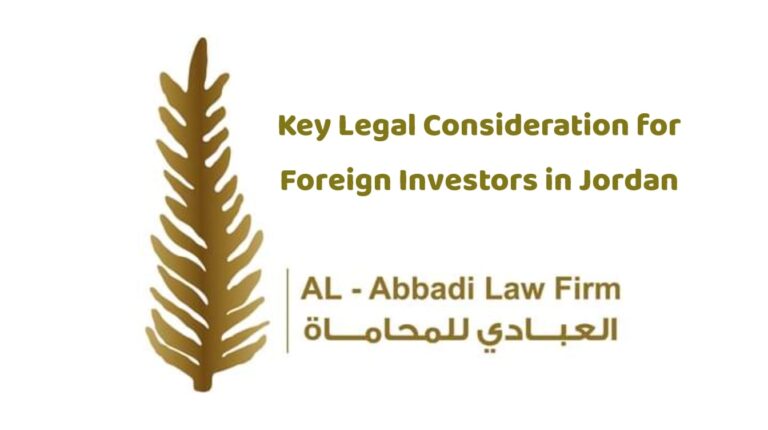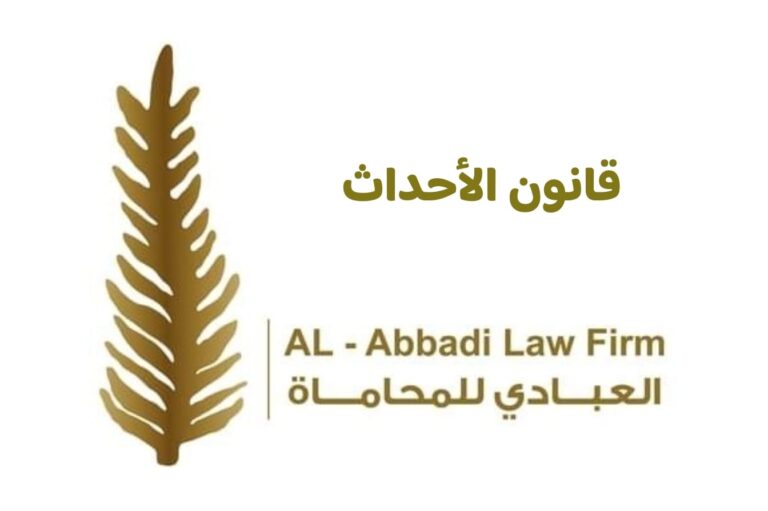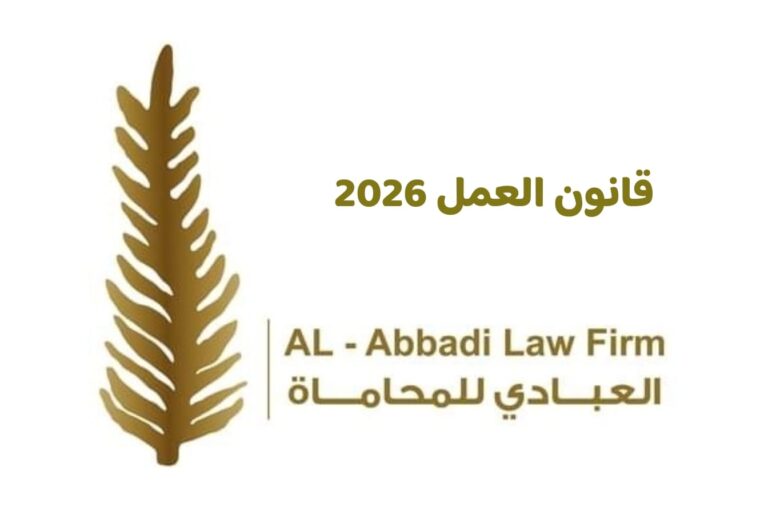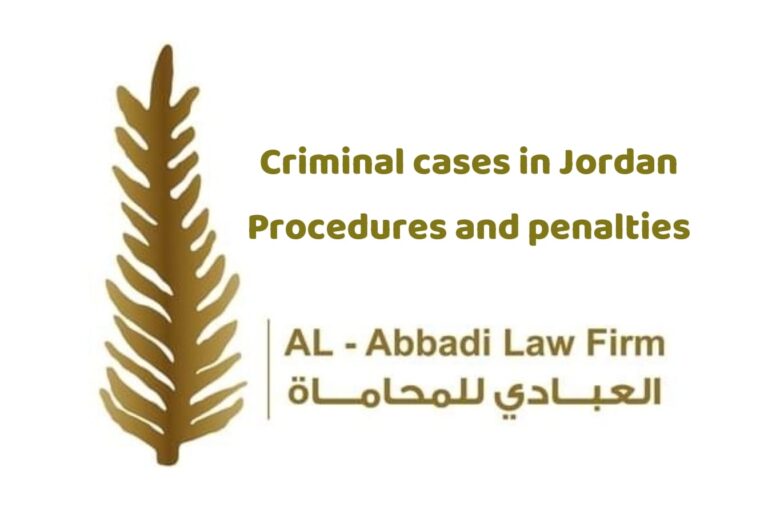Key Strategies to Protect Your Company in SaaS Contracts
Key Strategies to Protect Your Company in SaaS Contracts
In recent years, Software as a Service (SaaS) has become the cornerstone of companies’ shift towards digitalization.
This business model relies on delivering software over the internet rather than selling physical copies or downloading
them into users’ devices.
As demand for these tech solutions has grown, complex legal challenges have emerged for companies, especially those
looking to expand globally.
Although the SaaS model is flexible and fast-growing, it raises important legal questions related to intellectual property protection,
privacy, enforcement, taxation, and more.
Expanding beyond the borders of the country of origin can entangle a company in a complex web of conflicting legislation between countries.
Therefore, preparing a legally sound SaaS contract that takes into account international particularities is essential to securing the company’s
rights and avoiding future disputes.
This article aims to provide a practical roadmap for tech company owners, especially in the Arab region, to understand how to protect SaaS
contracts at the international level.
We will review the legal challenges, the most important clauses to include, and the preventive mechanisms that protect the company,
with a focus on the importance of harmonizing law and technology to ensure the success and continuity of digital businesses in a rapidly changing global market.
-What is a SaaS contract? Why is it different?
A SaaS (Software as a Service) contract is a legal agreement between a service provider and an end user,
whereby the customer is granted the right to use the software online for a specified period and under certain conditions,
in exchange for a periodic or annual subscription.
Unlike traditional software sales contracts, a SaaS contract does not involve the transfer of ownership or physical delivery of the software
but rather grants the user a limited license to access the software via a cloud environment managed by the owner company.
This shift from “sale” to “licensing” gives SaaS contracts a different legal nature and requires careful drafting that takes into account this
fundamental change in the relationship between the parties.
The legal nature of SaaS contracts is complex because they contain overlapping elements of contract law, data protection law, intellectual property law,
and private international law.
They are ongoing service contracts, not one-time sales contracts, which means that the rights and obligations therein continue throughout the contractual relationship.
They are also often concluded online, which brings them within the scope of electronic contracts and adds legal dimensions relating to proof, consent,
and determination of jurisdiction.
In addition, most SaaS contracts are multinational in nature, as the software developer may be in one country, the servers in another,
and the customer in a third.
This geographical distribution poses legal challenges that do not exist in traditional contracts,
such as conflicting laws, difficulty in enforcing court judgments, and the need to comply with data privacy laws that vary from country to country.
Therefore, understanding the unique characteristics of a SaaS contract is the first step toward protecting it internationally.
International legal challenges in SaaS contracts:
When a SaaS company decides to expand its activities beyond national borders, it automatically enters a complex legal
minefield that requires careful consideration.
The law governing the relationship between the two parties may not be the same in every country, which means that what
is legitimate and legal in one country may be illegal in another.
These differences pose a real threat if not managed from the outset with a well-drafted contract and a clear legal strategy.
One of the most significant challenges is the multiplicity of legal systems. Countries differ in their approach to electronic contracts,
data regulation, and the enforcement of obligations. Some countries require contracts to be in paper form or stipulate exclusive jurisdiction
within their borders, which can make contract enforcement or international arbitration nearly impossible in the event of a dispute.
Therefore, determining the applicable law from the outset is not a luxury, but a strategic necessity.
Another serious challenge is the difficulty of enforcing a contract outside the company’s country.
If the foreign party breaches the agreement, legal action against it may be complicated and require international arbitration or judicial recognition
in the other party’s country, which is not always guaranteed.
In addition, international litigation can take years and cost a fortune.
When it comes to data protection, the issue is even more sensitive, Laws such as the General Data Protection Regulation (GDPR) in the European
Union imposes strict obligations on companies regarding how they collect, store, and transfer customer data. Huge fines may be imposed for non-compliance,
even if the company is outside Europe. Similarly, California’s CCPA has become an international benchmark for consumer privacy protection.
There is also the challenge of intellectual property, especially when dealing with countries that do not effectively enforce agreements such as WIPO or TRIPS.
In this case, your company may be exposed to the risk of copying or piracy without any real ability to protect the code, interface, or even the product name.
Tax challenges cannot be overlooked, some countries impose special taxes on digital services, even if the company has no physical presence
within them, which requires reviewing international tax laws and avoiding serious violations.
These challenges confirm that operating in the international SaaS market is not simply a matter of expanding the user base,
but requires a comprehensive legal strategy that begins with contract drafting and ends with enforcement and compliance mechanisms.
Protecting an international SaaS contract:
practical steps When dealing with international markets, it is not enough for the technical product to be robust or the service to be outstanding.
legal protection of the contract must be an integral part of the company’s strategy. The law is the first line of defense in a dispute, and any loophole
in the contract could open the door to financial risks, reputational damage, and possibly the complete loss of the product. In this section,
we will present practical steps for protecting a SaaS contract internationally.
First – Drafting a sound legal contract:
The first step in protection begins with the drafting of the contract itself. It must be written in precise legal language,
unambiguous, and taking into account the legal differences between countries. For example, the wording of the arbitration
clause or the applicable law must be written with absolute clarity, as any ambiguity could lead to the clause being invalidated in the event of a dispute.
It is essential to clearly specify the applicable law, whether it is the law of the country to which the company belongs or a neutral law (such as English law).
This specification resolves any dispute over the interpretation of the contract or the mechanism for its implementation.
It is also necessary to specify the dispute resolution body: is it a specific court? Or international arbitration?
And where is the arbitration center located? Many startups neglect this clause and later find themselves forced to litigate in the client’s country,
under a different and costly legal system.
Also, a clear clause on intellectual property must be included, stating unequivocally that all rights to the software, code, and design remain
exclusively with the service provider, and that the customer only obtains a limited and non-exclusive license to use them.
Second – Essential clauses that must be included:
In addition to the above essentials, there are a number of essential clauses that must be included in every international SaaS contract,
as they form the backbone of any successful contractual relationship.
Contract term, renewal, and cancellation mechanism:
It must be clarified whether the contract renews automatically, when either party has the right to terminate it,
and what procedures are required to do so.
Service Level Agreement (SLA):
This clarifies the provider’s obligations in terms of uptime, response time, customer support, and the consequences of
breaching those obligations.
Limitation of Liability:
This clause protects the company from huge compensation claims by setting a liability cap at a certain amount or limiting it to direct damages only.
Privacy and Data Use Policy:
This should include explicit terms on how data is collected, used, and stored, in accordance with international laws, especially when dealing with
customers from the European Union or the United States.
Force Majeure Clause:
To specify the circumstances that exempt both parties from contractual obligations, such as natural disasters, wars, major technical crises,
or government decisions.
Third – Hiring an international lawyer:
Even with the best intentions, law remains a specialized field, and no company, no matter how large, can deal with international legal
complexities without specialized support.
Therefore, hiring an international lawyer specializing in SaaS contracts and cross-border technology is a crucial step.
This lawyer will:
Review the contract wording and adapt it to each market.
Ensure its compliance with the local laws of the target countries.
Verify intellectual property protection in different markets.
Provide advice in the event of disputes or international arbitration.
Working with a law firm with international experience provides the company with a layer of legal protection that is difficult to overcome
and gives it greater confidence when negotiating with customers or external partners.
Data protection and international compliance:
In the world of SaaS, data is the core of the service, whether it is customer data, user behavior, or content stored on servers.
But what many startup owners don’t realize is that the retention and analysis of this data is subject to strict laws that vary from
country to country, and violating them can result in huge fines and service bans in some markets.
The most prominent of these laws is the European General Data Protection Regulation (GDPR), which is the most comprehensive
and stringent in the world.
It applies not only to companies based in the European Union, but to any company that provides services to European users,
even if it is based in Jordan or any other Arab country,
This means that having even one European customer is enough to require
you to fully comply with the GDPR, including:
Obtaining explicit consent to process data,
Providing a mechanism to delete data upon request,
Specifying a retention period, and Documenting the processing relationship in a data processing agreement (DPA).
In the US, some states, such as California, have begun to implement similar data protection laws, such as the CCPA,
which require companies to disclose the nature of the data they collect, allow users to opt out of the sale of their data,
and give them access to their entire data record.
The biggest challenge here is that compliance with these laws is not only achieved through a general privacy policy on the website, but also requires:
Precise legal clauses in the contract,
Technical arrangements such as data encryption and server location,
Training employees on how to handle data in accordance with legal requirements.
Furthermore, laws vary from country to country. Some Arab countries, such as the UAE, Qatar, and Saudi Arabia,
have begun to implement national data protection laws that impose similar or even stricter conditions,
such as requiring data to be hosted within the country or obtaining government approval when processing data through third parties.
Therefore, any international SaaS contract that does not include clear provisions on data protection and compliance with international laws
is incomplete and poses a potential legal risk. Prevention here does not mean avoiding complex markets, but rather preparing contracts properly,
updating them continuously, and documenting actual compliance on the ground, whether through contract terms or accompanying technical procedures.
-Protecting intellectual property internationally
In the software industry, intellectual property isn’t just a legal thing, it’s an investment asset that can be worth millions, if not the whole value
of the company. The code, user interface, algorithms, brand name, and even the user experience… All of these fall within the scope of intellectual
property that must be protected by various means, especially when dealing with foreign markets.
In the local market, a company may be able to easily register its rights, such as registering software, code, or product names with the National Library
of Jordan or the relevant authorities in your country. This registration is an important first step, but it is not enough to protect you internationally,
because each country has its own system, and local protection does not automatically apply.
To protect SaaS programs in foreign markets, you must take advantage of international agreements and treaties such as:
The Berne Convention for the Protection of Literary and Artistic Works.
The World Trade Organization’s TRIPS Agreement, which requires member states to enact legislation protecting intellectual property rights.
The World Intellectual Property Organization (WIPO), which provides mechanisms for international registration and cooperation between governments.
However, formal registration alone does not prevent copying or theft. A SaaS contract must include clear and strict legal provisions stating that:
All elements of the program (code, design, interface) are owned by the provider company.
The user only obtains a limited, non-exclusive license to use the software and does not own any rights to the software itself.
Reverse engineering, copying, modification, and resale are prohibited.
Legal penalties and compensation are specified in the event of a breach of these terms.
If you deal with distributors or agents in other countries, separate agreements must be signed with them that include their explicit
commitments to protect intellectual property rights and ensure that they are not infringed upon, that the code is not leaked, and that
it is not redeveloped in competing projects.
Don’t forget the need to protect your brand/trademark as well, by registering it with the relevant authorities in your target markets,
especially if you plan to expand into Gulf or European countries.
Protecting intellectual property should not be a step taken after success, but rather part of the legal foundation of any globally
successful SaaS product.
Ignoring it in the early stages may lead to your efforts being stolen or you becoming involved in legal battles in which you do not
have sufficient evidence or rights to protect yourself.
– Tips for Jordanian and Arab startups:
Startups in Jordan and other Arab countries face a double challenge when entering the international SaaS market.
Not only do they compete on product quality or innovation, but they also face legal, regulatory, and cultural complexities.
However, with proper legal planning, these challenges can be overcome and turned into opportunities.
First: Don’t start without a well-drafted international SaaS contract:
Many companies start doing business with customers or distributors outside the country through verbal agreements
or simple correspondence, thinking that “trust” is enough. This is the most dangerous thing you can do.
There is no substitute for a legally drafted SaaS contract, accurately translated, containing all the clauses
that protect your company from the beginning to the end of the relationship. You can use an international
contract template as a basis, then modify it according to the target country or market.
Second: Tailor your contracts to each market:
Although there are commonalities between legislations, each country has its own legal peculiarities (whether in consumer protection, taxation, or data protection).
Therefore, be sure to tailor the terms of the contract to each country, especially with regard to privacy, taxation, and jurisdiction.
This is where it becomes important
to have a local or international lawyer review the contract before sending it.
Third: Choose payment service providers that comply with international laws:
Some companies rely on payment gateways that are not compliant with data protection laws (such as GDPR) or operate in
countries that may impose legal or tax restrictions on them. Make sure you deal with a payment provider that has a solid
legal structure, a good track record of compliance with legislation, and provides you with clear reports that facilitate
subsequent review and auditing.
Fourth: Document all legal interactions with customers:
A common mistake in SaaS is neglecting to archive contracts, legal communications, or approvals provided by customers electronically.
All of these documents can be used later as legal evidence in the event of a dispute.
Use tools such as electronic signatures, email documentation,
and contract management systems to maintain a robust record that can be referred to when needed.
Fifth: Include a clear and binding clause for dispute resolution:
Disputes are inevitable in any international activity, and it is wise to determine how they will be resolved before they begin.
Don’t leave this to chance. Specify the arbitration body (such as a neutral international arbitration center) or the competent court,
along with the legal language of the contract, the cost of arbitration or litigation, and how the judgments will be enforced.
This prevents many future disputes and shows your professionalism from the outset.
Ultimately, remember that startups are not only measured by their technical capabilities, but also by their ability to manage risk,
especially legal risk. Smart legal protection from the outset will save you serious problems later on and open the door to secure
and sustainable growth in global markets.
Collaborate with international lawyers and local experts:
Even the most carefully drafted contracts can face practical challenges on the ground if they are not compatible with the local legal
context in each of the countries where your company operates. For this reason, collaborating with international lawyers and local legal
experts is a necessary step to comprehensively protect your SaaS contract internationally.
Local lawyers are familiar with regulatory provisions, jurisdictional competencies, judicial precedents, and sometimes even unwritten
commercial customs that may affect how a contract is interpreted and enforced. For example, some countries may not recognize certain
standard
clauses in international contracts, such as “arbitration clauses” or “limitation of liability clauses,” while others impose strict restrictions
on the use or storage of data outside their borders.
Through this collaboration, you can ensure that the contract does not violate local regulations, with addenda or amendments specific to each
country, without compromising the basic structure of the original contract.
This not only protects your company from legal risks but also shows customers that you take your commitments seriously and respect the
particularities of their legal systems.
Conclusion:
Towards a comprehensive legal strategy for international SaaS contracts with the accelerating pace of digital transformation and global
reliance on cloud software services, it is no longer sufficient to rely on a traditional SaaS contract template.
Instead, companies must adopt a proactive legal approach that takes into account legislative differences between countries and includes strict
data protection, clarity in liability limits, and effective dispute resolution mechanisms.
Protecting an international SaaS contract is not limited to precise legal drafting, but extends to integration between legal, technical,
and commercial teams, with the aim of building a flexible, robust contract that can withstand any future regulatory or judicial challenges.
We advise any company offering SaaS services outside its national borders not to rely solely on ready-made templates or individual efforts,
but to seek the assistance of specialists in international and technical law to ensure comprehensive protection of the contract and the company’s
position in the global market.
Contact Al Abbadi Law Firm:
We are here to serve you and provide the best legal solutions for any challenge whether individual or institutional.
Contact Information:
Jordan – Amman – Al Abdali – King Hussein Street – Aqarco Commercial Complex – 4th Floor
Phone: +962 798333357 / +962 799999604 / +962 6 4922183
Let me know if you’d like a polished PDF version or LinkedIn-friendly summary for international sharing.












